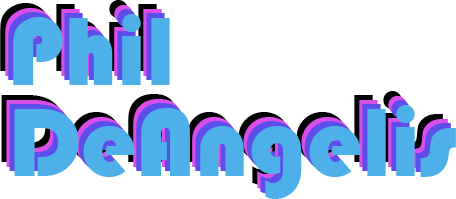The 3% Conference ended on a perfect note last week: entrepreneur Cindy Gallup, inciting the crowd to take part in the movement toward a new type of agency, one that has no excuses. A new type of creative company built with a premise of diversity, rather than diversity as an afterthought.
One of the most prominent themes that ran through the message of over 100 entrepreneurs, CEOs, creative leaders and agency professionals at this year’s conference was knowledgeable fearlessness. For Liz Jackson, founder of The Disabled List, knowledgeable fearlessness means to question everything in a post-industrial era. Her group champions diversity through self-advocacy for physically disabled creatives. Their message is simple, “When we are finally able to question the systems that disable us, we will stop seeing our bodies as the problem.”
Liz’s talk was the exclamation point on one of the primary goals of this conference -- relentlessly establishing the problem of lack of women and diversity in creative fields. These conversations yielded valuable insights and ideas for solutions, including a variety of thought leadership initiatives and career lessons.
In “How to Be a Great Creative Leader,” Corinna Falusi from Mother, NY, discussed the importance of not being afraid to hire someone who is different than you – a true fearlessness. This means that agencies need to start working from a diverse slate of candidates for open positions.
Later on, an impassioned speech from Rene Huey-Lipton of Sparks & Honeyconveyed how being fearless means speaking up and demanding justice in the workplace for all people. The future of diversity in advertising means more than just not silencing minorities. It means creating policies and environments that allow them to speak loudly without fear of persecution.
For other creative professionals, being fearless means leaving an agency that does not celebrate diversity and finding a better place to thrive. Or, for Amanda Enayati, Iranian refugee and cancer survivor, it means breaking free from learned helplessness. And, as the “If Only Advertising Could Use It’s Powers for Good” panel discussion revealed, brands can’t be afraid to tie products to a good cause – even if it means living through the backlash.
One of the most forward-thinking talks of the day came from the founder of the Gaia Project for Women’s Leadership, Elizabeth Cronise McLaughlin. She reminded us that everyone has privilege and that we must all use that privilege for good. For men, being fearless means stepping into discomfort and acknowledging privilege so that it can be leveraged for empowering diversity.
The 3% Conference also touched on several messages for parents in Adland. A number of talks reinforced the importance of agencies of the future promoting equal working environments for mothers and guaranteeing equal pay for all parents. The “Ad Dads Speak Their Truth” talk featured the inspiring story of ECD Jason Elm and his family, illustrating that our passion for work must not become our addiction. Adapting our career arcs to leave time for kids is not a perk, it’s a must.
So, we have this diversity problem. What can we do about it? We start by not leading from a place a fear. We must push our agencies to close the gender wage gap and take every inch as a victory. Paul Venables of Venables Bell & Partners encouraged us to become agents of radical change and to chase change instead of recognition. Love must win in the battle against ego. This is the premise we must build from to ensure creative diversity.
And what exactly are we building? Maybe it’s an agency owned by a holding company that was started by a minority community member. Maybe this new agency offers a freer working environment where no one feels silenced. One where employees are not intimidated by same-looking executives. Where profit margins are widened because viewpoints and perspectives on solving client problems is more unique and broader. And, because of all this, clients benefit from a more efficient workflow.
Cindy Gallup’s final keynote was about more than just awareness. This 3% movement is now a call to action to step into discomfort and out of silence. The question is not whether our industry needs to change, the question is are we fearless enough to make it happen.
